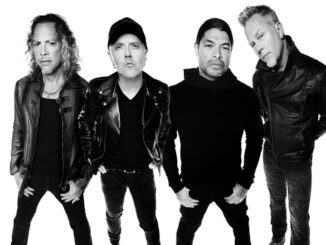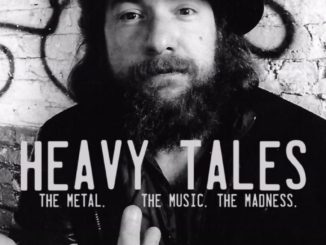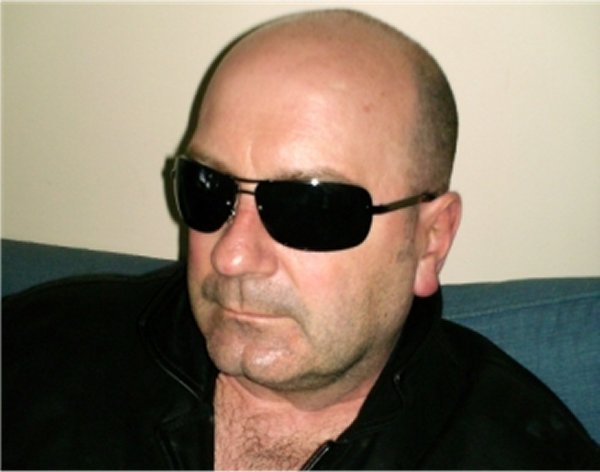
Mick Wall pretty much wrote the book on rock journalism, from his early days working on Kerrang! magazine, travelling the world with the biggest bands in the world like Guns n’ Roses and Metallica, a tenure on CLASSIC ROCK MAGAZINE to his latter-day career as exhaustive rock biographer.
Wall’s latest weighty tome is ENTER NIGHT – METALLICA, THE BIOGRAPHY, and we had the good fortune to spend some time talking with the man who, in the world of rock journalists, has done it all AND bought the t-shirt. Mick has a cold on the day we speak, and between nose blowing I cut straight to the chase and ask – why write a book on Metallica?
Author’s note – I originally interviewed Mick Wall as part of the publicity for his then-forthcoming Metallica biography ENTER NIGHT in February 2011. Following a computer crash (always make backups, kids!) I thought this interview was lost forever, but after no small amount of tinkering, here it is – resurrected from the dead in all its glory. Mick was generous with his time, and we spoke on the phone for almost double our allotted time, plus he then agreed to answer a load more questions by email. A lifetime being in the interviewer’s chair has obviously shown him how to treat those interviewing him with grace and charm, and he was a gentleman throughout. I’m so happy to be able – finally – to share this comprehensive interview with our readers, and if you haven’t read ENTER NIGHT yet – YOU SHOULD! Go and buy it! Shane, September 2011.
Mick Wall: Well – after the Led Zeppelin book [“When Giants Walked The Earth”, published 2008], I was looking for something that would give… ‘cos Led Zeppelin, that’s such a great story. I mean, they’re a great band of course, but there are lots of great bands – it’s the story that primarily interests me and funnily enough 15 years ago, somebody was talking to me about doing a Metallica book and for various reasons it never happened in the end, and I was thinking if I had done that book 15 years ago, it would have been a very different book. I don’t think it would have been very interesting, or as interesting, it would have been, you know, band invents thrash, band gets out of that box and goes onto become the biggest band in the world, everybody lives happily ever after, end of story you know. At this point, that was so easily the story of Metallica, but this became fascinating to me – I think they have been on an incredible journey, lots of highs, many lows, lots of mistakes but also some incredibly good moves as well, which is why, you know, when you talk about the Big Four, as a guy from Megadeth says to me in the book, really there is only a Big One – and that is Metallica. So it’s the story really, it’s an incredible story.
Shane: It is, and it’s full of high drama as well…I’ll be very surprised if someone doesn’t make a movie about of one of these days.
Mick Wall: Well, it’s certainly got all the elements: it’s got death, it’s got drugs, it’s got screwed up childhoods, it’s got money, it’s got women, and the other thing that kind of attracted me to it, was the fact that, the working title of the book was originally – the Zeppelin book was called “When Giants Walked the Earth”, the working title of this for a long time was “Last of the Giants”, because to me they are kind of like the last link between that world of Led Zeppelin where rock bands put out these shiny 12 inch pieces of plastic, refuse to play the corporate game and just went on tour, to where we are now, to the far future of the 21st century where albums are on the verge of extinction, the record business virtually is extinct, and we live in a world where we can simply download a track at a time from any era, any time, any place. You know Metallica are still touring of course, you can see wherever they played a week ago on YouTube, and it’s just a very different world from the one they came out of, and yet they somehow managed, unlike the dinosaur rock band, they really have survived.
We get to talking about Metallica’s latest “in the round” stage design, which includes a really low stage, which Metallica suggest will help the audience feel they are closer to the band and part of the performance. An admirable idea, but the only problem with it is that anyone shorter than six foot struggles to actually see anything if they’re not in the first few rows…
Mick Wall: Yeah, I think they are kind of in a no-win situation with that because no matter how many shows they announce they sell out so quickly, they want everybody to have as good a view as possible. It works if you are in the seats – if you are in the stands it works really, really well, but if you are on the floor you have to be either pretty tall or kind of fight your way to the front. I agree with you. I tell you one thing, I saw them in the round and what really struck me was, having seen many groups in the round in the past, there is always a neat little trick they do at the end of the show where they are able to get off the stage without anyone seeing them, or hogging them, and because it is in the round there is no side of stage or back of stage, and what I noticed about them, which was fantastic I thought, was at the end of the show, they just stayed on the stage, they didn’t disappear, they didn’t go and hide under the stage and get back to their dressing rooms some surreptitious way, they stayed on the stage until long after the house lights had come up, and they were just walking around talking to people, and I just found that incredibly… almost as interesting as the gig itself, that somebody would do that, cause I have never seen groups that would have the audacity or the kindness in a way of doing something like that. I feel underlying the fact that whatever we all think about them, it’s that weird, strong, heavy connection they have with their fans that sustains them.
Shane: When you are writing about an artist like Metallica that has just had so much coverage in the media, and other books and so on, how do you find something new to say?
Mick Wall: Well I think, in this particular case, maybe its THINKING. I mean, it’s as simple as that. You read what everybody else has written, you listen to the albums again and you spend a great deal of time thinking about it. I can’t underline how much sitting there, apparently doing nothing but actually just thinking that you do. In my case I also have a relationship with them that goes back to the early 80’s; I was in the studio with them when they did “Master of Puppets”, same with the “Black Album” and “And Justice for All”. In some ways, we grew up together. I also have worked in the music business since the late 70’s, and I have worked with pretty much every major rock artist you would care to name, so I’ve had a lot of experience and I know full well what it is like to work with artists and how very different the reality is than the one we read in books and magazine articles. And the truth of Metallica is the same as The Stones and Zeppelin and all these other people. There is all this orthodoxy that is built up over the years that people just repeat endlessly, none of which is true. I mean, number 1, when Cliff Burton died, the band carried on because that’s what Cliff would have wanted… Absolutely not true. You know, the band carried on because that is what James and Lars wanted.
Mick Wall: Remember the first record that Jason Newstead appeared on, the “Garage Days” EP, they did this kind of mini album of cover versions to break Jason into the band. Absolutely not, you know, there was NO idea of breaking Jason in the band. They were playing at Donington Festival in England, and some festivals in Europe, they had just signed a major deal in Britain and Europe, and the record company wanted some product to sell, so they quickly went in and made it really fast in order to sell bucket loads of records. This is what artists do, you know, the whole thing about them not going to make a video. Well as Lars tells me in the book, that’s right, they didn’t do a video for the first three albums, but only because they knew MTV wouldn’t play them anyway. They’d have done a video in two seconds flat if they thought MTV would actually play it, but instead they very shrewdly decided, why waste money on it when it’s not going to get played, instead we’ll take this position that “Hey, we don’t do videos”. I mean, they made very shrewd moves most of the way. The only very big mistake I think was hiring Jason so quickly after Cliff died, and also the whole Napster thing, which backfired so badly for them, like a cloud that still hovers over their story to this day.
Shane: Yeah, for sure, but apart from the Napster thing, they were able to, you mentioned videos and so on, they put really positive spins on possibly negative situations.
Mick Wall: Yeah well, Lars comes from a very educated, very well off background, as he tells me in the book, you know, he could speak five languages as a child, he travelled the world with his father, who was a tennis professional. He used to come down to the Australian Open every year, Wimbledon, New York, you know, the whole thing. So here’s a guy, an only child of a bohemian family, not only is his father a tennis player, he’s a jazz player, he’s an artist, he’s a film maker. I mean, Lars comes from a very bohemian, artistic, moneyed background and so, this isn’t a kid off the street who suddenly found fame, this was a guy who built a career for himself and was making shrewd moves from the word go.
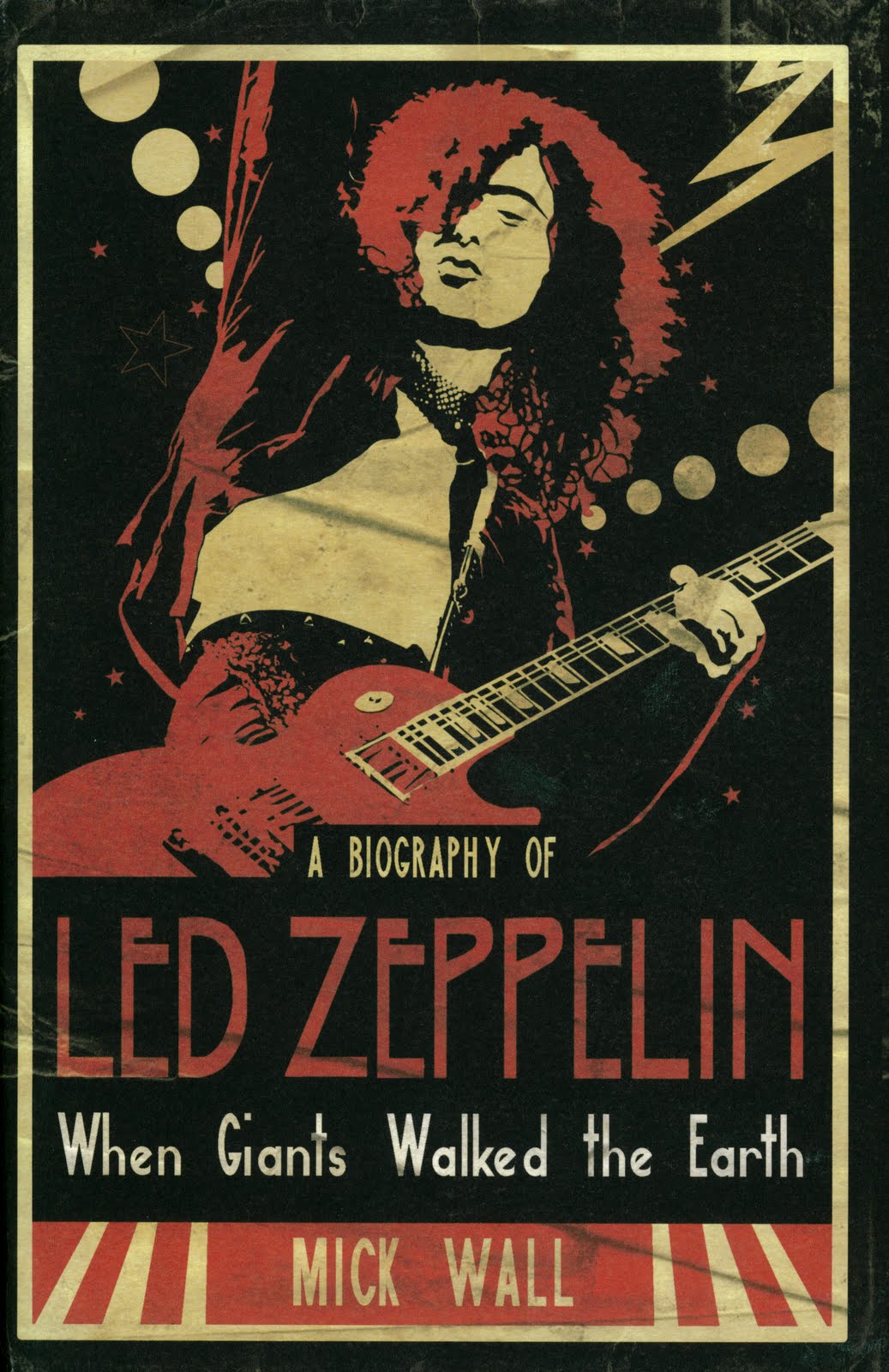
Mick Wall: Shrewd move number one – getting together with James Hetfield – a loner from a completely dysfunctional family, a broken family where the father has left the home, a very angry guy.
Mick Wall: Shrewd move number two – Cliff Burton. I mean, actually taking the band out of Los Angeles and moving it to San Francisco, just so that Cliff would join the group. I mean, when you’re a teenager, that’s an audacious thing to do, a very far sighted thing to do, and that’s the deal with them, they were always very far sighted, right from firing Mustaine from the group even though he was incredibly talented, they realised he was going to hold them back because of his personality, and you look at what happened in the 90’s, when Grunge came in and virtually killed off that whole Guns n’ Roses generation of bands overnight, Metallica were the only ones really to survive, and absolutely they deliberately cut their hair and changed their image and changed their music 100% deliberately in order to adapt and survive in the new environment that they found themselves in. Now they didn’t maybe make some of their best records then but they sure as hell pushed the envelope and just added to the journey. I mean, whatever you think about Slayer and Megadeth and these other bands from the Thrash era, they have pretty much stayed where they were, back in 1985. Metallica are so far over the rainbow at this moment, there’s no way back.
Shane: You inserted yourself in the story throughout the book – you said that you grew up alongside them effectively, and with your anecdotes at the start of each chapter, were you tempted to write the story more from your own perspective or was that more of a tool to kind of personalise their tale?
Mick Wall: It was definitely a tool to personalise their tale, even so to a point whereas to kind of burst the bubble of this authoritative biographers voice. I hate these books where the biographer seems to know everything and criticises groups for doing things just for the money or making a bad move, ‘cause we all do that. I mean, nobody’s perfect, and, I mean, you shove a million dollars on the table in front of me I am liable to do anything for you!
Shane: I am the same mate! [we both laugh]
Mick Wall: And so it becomes about what it was like not just to have a guy interview the band, but a guy who actually knows them and what it was like to be going into the hotel, right around the elevators and sitting in the chair and having a beer, travelling, having dinner, just sitting around doing nothing, shooting the breeze. That’s when you get the real moments I think of what people are really like, so as a toast at the beginning of each chapter, I also show what an idiot I can be as well… (laughs).
Mick Wall: And when we’re getting tired or whatever, the real kind of, what I consider the rules for Metallica, which frankly have just never been told, and I think it makes it all the better for that, so when it turns bad it really turns bad, and while it’s good, it’s super good.
Shane: Yeah, absolutely, absolutely. There’s nothing worse than those biographies which they’re either just quoting off facts and figures that they’ve learned from six different sources or they’re being judgemental about a bands career or whatever
Mick Wall: ‘Look we sold twenty five million albums’… It’s like ‘I don’t care’. Or “I slept with this many girls”
Mick Wall: Some bands sell millions of albums and they are really shit, I mean, ‘They only did it for money’. Does that make them despicable people? Metallica did everything they could to have a major hit with The Black Album – [Yet people still say] “how could they?”. Hey, this is a really shrewd, courageous thing. They did something that Megadeth and Slayer and those bands absolutely didn’t have the brains or the balls to do.
Mick Wall: They really went for broke and decided they were going to make an album that would make them bigger than Bon Jovi, which was an absolutely laughable idea in the late 80’s that they would even be as big as Iron Maiden, let alone bigger than anyone else! Yet they did it, they pulled it off, they made this incredible album, that they couldn’t have made if Cliff was still in the group, but instead of it quashing them and making them collapse on themselves, they changed, they just changed and did something really audacious and suddenly it turned into one of the biggest selling albums of all time. I think that a lot of kids think that’s a really easy thing to do, but this is the hardest thing to achieve in the music business and it absolutely fulfilled all Lars’s dreams, I mean Lars is a music businessman first and a drummer second.
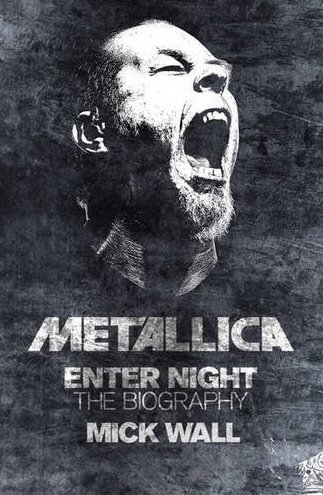
Shane: Mmm. That’s a good perspective. Do you have a standard approach to researching your interviews? Or do you just approach each one on an individual basis?
Mick Wall: I do try and read and absorb everything that I can, I try and look at everything I can, I try and listen to everything I can. I remember sitting and listening to the ‘…And Justice For All’ album again and again and again while writing the book, and did so with all their albums but I think on that one because I never liked it, you know, and I thought maybe all these years later suddenly something will reveal itself to me, and it didn’t! Maybe two tracks on that album are good, one is great, which is ‘One’, so it’s really just sitting there and listening again and immersing yourself in it. I just feel that the key is, you know, it’s very rare for me to do a book where I don’t feel I already know a great deal about the subject, but the best ones I have ever written, like Zeppelin and like this one, are the ones where the book becomes a journey for me too, I realise long before I’m even half way through that in fact I never really knew anything about this group, I never really knew the true story until I actually sat down and tried to put all the pieces of the jigsaw together, go back and talk to the people that were there at the time, and talk to the group again, and… it’s like having a huge puzzle with a million jigsaw pieces in it and then you have to kind of bog them up into different chapters and then you have to kind of and turn each chapter into a picture.
Mick Wall: And it’s obviously doing that, that you, you find out what the story is that you’re trying to write, it’s a real chicken and egg situation, so it’s a journey. I know, my opinion of Metallica has completely altered now that I have done the book from what it was before I started.
Shane: To take you back to the start of your career, your first few years were spent bouncing around from journo to PR and press officer, but you really seemed to come into your own when you first started writing for Kerrang! Was there a real gang mentality amongst the writing team during that period?
Mick Wall: Umm It was unlike any I have known before or since. Kerrang! was the very first of its kind, the very first what was originally a monthly colour heavy metal magazine and it went every two weeks then it became a weekly and we were owned by a magazine company that had bigger, better selling titles and so kind of ignored us, we were in a room together on one floor away from the main action and we were absolutely ignored, it was like heavy metal weird stuff, I mean “we don’t know what it’s all about so let them get on with it”.
Mick Wall: We weren’t considered a serious magazine, so, and there was only about four or five of us there, so we literally went into this room everyday, playing this music, ridiculously loud, drinking and smoking, which you could do in those days, and we put whoever we liked on the covers of the magazine. [Nowadays] discussing what goes on the cover each month, it’s just hell – you bring in the publishing director, the marketing guy, the sales guy, you have a “strategy” – y’know every corner of that magazine cover is pored over and worked out to the eighth degree, you know. In those days it was just like “Hey have you heard The Chainsaw Massacre? Oh it was brilliant let’s put it on the cover hoorah”… “Let’s do it, goodo” (laughs).
Mick Wall: So we put a lot of bands on the cover of the magazine that were never ever heard from ever again! We also put a lot of bands on the cover of the magazine that were called things like Metallica, Guns N Roses, Bon Jovi, Def Leppard, Anthrax, Slayer, Megadeth, I mean the list just goes on and on and on. There was no MTV, no Internet, in this country [England] there was just one national radio station that never played hard rock or metal, and the record companies, well record companies were swimming with money so they had loads of money to spend on sending us all over the world cause we were the only people in the UK that gave a damn about Iron Maiden!
Mick Wall: So it was unbelievable, and we just thought, “we’re on to something here”! I’ll tell you, someone once said to me years ago, I don’t know if it’s true anymore, but this was years ago, is that Australia is the best kept secret in the world – it’s the best place to live, the best country, the best time, but don’t tell anybody because they’ll all wanna come here, you know? And that’s what Kerrang! was like. It was the best time, but it only stayed that way as long as people outside that circle didn’t really know about it.
Shane: (laughs) So yeah, they were your glory days. I was sixteen when I started buying Kerrang! and that for me at that time was the Bible. I mean, we’re in Perth in West Australia, which is the most isolated regional capital in the world, so we would get maybe one big band a year touring and the only way we knew about stuff in those pre Internet days was through Kerrang!, so you guys were the font of all knowledge effectively…
Mick Wall: [Back then] it was the only one of its kind.
Shane: Absolutely.
Mick Wall: I mean, I tell you what ok, this is what used to happen every morning in 1984: I used to live in a tower block in South London, which we called ‘Terror Tower’ and the live in designer, a guy called Krusher, [Krusher Joule] used to get the bus in over the Thames from South London to the office in Covent Garden and they would just be pulling the shutters on the pub doors as we were walking up to the office, and we would walk straight into the pub, the first customers of the day and they’d have two whiskeys on the counter waiting for us, that’s when we were kids right.
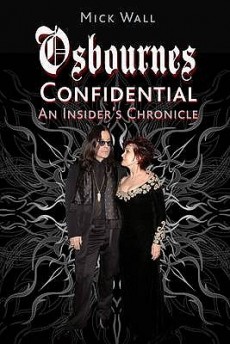
Mick Wall: And he’d go “rock!” and I’d go “Roll!” and we would down them. And then we would go into the office and we would have a bottle of tequila or mezcal on the table, we would sit opposite each other on the table between us, and by the end of every day, that was gone, and, but at the end of the day you would think “We have worked hard today, obviously we need a drink”, so you’d go out to a gig, you’d go out to a party, you’d go somewhere, there were gigs and parties almost every single night, and because the record companies were so pleased that someone was interested in their groups – cause they weren’t all famous obviously, most of them weren’t, the first time we went to see Metallica no one had ever heard of them – they wouldn’t even put names on the guest list, it’d just be “Kerrang!” on the guest list – and as you were from Kerrang!, you just came in, and that went on pretty solidly for two or three years at its height! And the magazine got bigger real quick, and of course once we started getting very big then suddenly the company started circling and wanting to know why this issue sold more than that issue.
Mick Wall: But none of us could ever tell them because we had no idea, you know, we just put Malice on the cover one week and Ratt on the cover the next week and here’s Motley Crue, but hey, Nightranger are really good, you know what I mean, but it wasn’t about who was good, it was just whether we liked their album, it’s as simple as that.
Shane: Sure. So in those glory days, you and the other guys, Geoff Barton, Malcolm Dome – Krusher I’ve chatted to on Facebook a few times, he’s always good for a laugh – you became celebrities in your own right really, and you’re all using and abusing the privilege obviously, you know, drinking and whatever else. Do you think that the journalists throughout the 80’s who were acting almost like minor rock stars yourselves, running parallel with that whole big hair metal glam thing, did you guys and Kerrang! itself crash along with that music scene when the whole grunge thing came and wiped the slate clean?
Mick Wall: Yeah absolutely. But it didn’t kill Kerrang!, in fact it did kill Kerrang! I mean Kerrang! is still going but – “it’s Kerrang! Jim, but not as we know it!”
Shane: Yeah I know, I haven’t looked at it in years, I’m a Classic Rock Magazine subscriber now, another one you had a hand in.
Mick Wall: I know the people that run Kerrang still, and essentially most of its buyers are now teenage girls, and there is nothing wrong with that, but there were very few teenage girls buying it when we were there.
Mick Wall: But you know, the ones who did who looked like, you know, female versions of Lemmy, you know.
Shane: (laughs)
Mick Wall: Grunge absolutely changed the whole landscape, but in fairness, these things come along for a reason, and I think one of the reasons grunge was so successful was that hair metal generation had kind of, was burning itself out, you know. Def Leppard were about and just released their best album ‘Hysteria’ in ’87 and were about to release the follow up in ‘92 which was one of their worst albums.
Shane: Absolutely.
Mick Wall: Iron Maiden had lost Adrian Smith in ‘89 whenever it was and were about to go on a run of dismal albums with Bruce then leaving, then Guns n’ Roses – we all know what happened there, they were just, you know, they were already over by the time Nirvana had stolen their crowd.
Mick Wall: So I think Motley Crue – Motley Crue interested me. They were the ones who seemed to actually be getting better by the end of the 80’s and early 90’s, I actually thought they might have a future. But the whole point of the “party-hearty” hilarity of that music, that was so rare. I come from an Irish family and they say Irish tell the best Irish jokes, you know, we knew how absurd a lot of it was and we had tremendous fun lampooning it in the gossip column of Kerrang!, “View From The Bar”, which I used to write, used to have a thing called “Syrup Of The Week” where we would joke about rock stars who used to wear a wig…
Shane: Yeah I remember that.
Mick Wall: …and, I can’t remember what we used to call it, was it ‘Wanger Of The Week’? or something like that where we would have a picture of rock star’s in tight trousers with enormous cocks, you know.
Mick Wall: And we had a great deal of fun with it, and grunge wasn’t about fun, there weren’t any British grunge bands, it was also the (can’t transcribe 28:17) of grunge in the press were the NME and Melody Maker, so certainly Kerrang! was way down the list in terms of priority, if Kurt Cobain was going to do an interview it was going to be with the NME or The Melody Maker, it wasn’t going to be from that lunatic from Kerrang! you know.
Mick Wall: So, it, it did completely change, and I think also we had got very big for our boots, I mean I was completely insane by 1991 – I was in LA, I’d started to take myself way too seriously, and it’s hard when every night you were having dinner with Ozzy or hanging out with Slash or you know, somebody is coming to consult you for your views on something, suddenly you think you’re big shit you know! You really think, you got a pool outside in your backyard and you think you’re somebody that knows something, and so I think that that wasn’t the fate of Geoff Barton or guys like that, I mean Geoff wasn’t much of a drinker actually, but for a lot of us it was a… we needed cutting down to size, so I think these things often happen for a reason. You go up and then you come down.
Shane: Do you remember where you were when you first heard ‘Get In The Ring’? [Mick was one of the journalists singled out for personal abuse by Axl Rose on this USE YOUR ILLUSION tune]
Mick Wall: Yeah I was, I knew it was coming because I had been warned, but a friend of mine had it, a drummer friend of mine and I was just around his gaff, and great friend of mine – he was the drummer with The Pogues for awhile, and The Exploited and various other groups – and he was there, a rock fanatic, you know, and he and I would hang out together, it was just, you know, see you later for a few days.
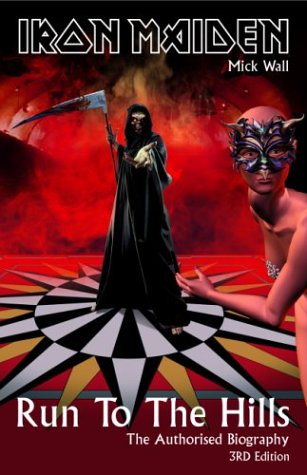
Shane: (laughs)
Mick Wall: But he had the album and he played it to me, I was just best man at his wedding, he got married to a girl that was like sixteen and she was in her school uniform when she got married. (laughs) It was fantastic.
Shane: Rock and Roll.
Mick Wall: Can you imagine, and we played this track and we just thought it was hilarious – and the next thing was Disney, who owned a company called Hyperion in America were on the line wanting to buy my book to put it out in America because suddenly I’m well known in America.
Mick Wall: And Sharon Osbourne around that time said to me, this is years before ‘The Osbournes’ you know, she said to me “What a fucking dick, if he hated you so much then the worst thing he could have done to you was completely ignore you, you don’t exist, you’re nothing, you’re no one, instead he’s turned you into one of the most famous journalist in the world”!
Shane: Absolutely.
Mick Wall: Total fucking idiot!
Shane: But then that’s Axl isn’t it, he’s bipolar or something – there’s something not right up there.
Mick Wall: He’s seriously in a bad place. A friend of mine told me just this week that’s doing PR for him recently and he had like a ninety second conversation with him just a couple of weeks ago, and it’s the same old circus, you know, everybody jumps when he speaks, and he doesn’t have anybody that he can call a friend, his life is run by this Brazilian woman…
Shane: Mmm, I’ve heard about that.
At this point we had to stop as Mick had other interviews scheduled, but he kindly agreed to answer the rest of my questions by email, but not before we have a quick chat about some family Mick apparently has in Perth:-
Mick Wall: I’ve actually got, there’s two of them ok, like my mother, my Mum and Dad passed a long time ago, but my Mum had two brothers that immigrated to, like I said my family’s Irish, so everybody immigrated somewhere, you know! And they went to Australia many, many, many years ago, back in the 50’s or 60’s, and I had an Uncle John, he’s still there, who I met once. I also have, an uncle Mick Wall.
Mick Wall: Apparently he was the black sheep of the family and ran off to Perth years ago and then got into a bunch of trouble, no one will talk about it and he’s now disappeared…
Shane: Wow – runs in the family then does it mate?
Mick Wall: Ah it does, doesn’t it! Right now there’s a madman running around Perth somewhere called Mick Wall.
Shane: Can’t say I have ever bumped into him, but all the best with your other interviews – have an excellent day.
And so we reconvened via email and picked up the discussion that wrapped up whilst discussing Axl Rose’s writing ‘Get in the ring’ about Mick and a couple of other journalists…
Shane: Did you get any threats or a backlash from Gunners fans?
Mick Wall: I still get threats and backlash all the time – which is rather odd when you consider that most of these come from teenage fans that weren’t even born when the song first came out. It’s all pretty meaningless though. The life I’ve lived, you want to do something to someone you do it – you don’t talk about it to your pals over the internet. On the positive, I still get film, TV and radio companies wanting to talk to me about it. Newspapers and magazines never stop asking either. You’re doing it now. As Sharon Osbourne said to me at the time, “If he hated you so much he should have just blanked you. Instead he made you one of the most famous rock writers in the world.” Thanks Axl, old pal.
Shane: Do you think Metallica might write a song about you now?
Mick Wall: No, they are much too shrewd. Plus, they should be flattered by the book. It doesn’t let them off the hook, at the same time it’s the most insightful book ever written about them, or that is ever likely to be written about them. Also, Axl didn’t write the song about me because of any book. He did it because of all the shit he got in with Vince Neil over the interview he (Axl) gave me about how wanted to fight Vince. I still have the tape of that interview and the follow-up phone interview I did where I warned him he sounded like a lunatic in the piece and offered him the chance to reconsider and he just laughed and told me – quote – “I still stand by every word!” As soon as it was published of course he denied the whole thing.
Shane: “Paranoid: Black Days with Sabbath and other horror stories” was a semi fictionalised memoir – do you have a more factual memoir in the works?
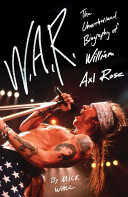
Mick Wall: I do actually. I am talking to my publisher and agent about it right now. It will be a cross between my blog at www.mickwall.com and some of the War Stories I published as columns in some issues of Classic Rock in the UK in 2009. Past, Present and Future all fucked-up together in the kitchen of some party, ogling girls with not enough clothes on.
Shane: The “Hard n Heavy” video magazine was a great lifeline to us in small town Perth, Western Australia – and no doubt around the world – for a couple of years in the early nineties. I’ve always wondered why was it that that brand didn’t stick around longer?
Mick Wall: Because it was run by a complete wanker who spent most of his days getting drunk. I bailed out after about three issues because I just couldn’t stand working for the prick anymore. I hear he’s much better now.
Shane: I still have my copies as well as some of the ROCKTHOLOGY re-release DVDs – classic!
Mick Wall: Sorry mate, I don’t know what this is.
[At some point the Hard n’ Heavy video magazine segments were chopped up and repackaged as a series of DVDs under the title ROCKTHOLOGY – you can find some of these on Amazon and Ebay if you’re keen]Shane: You’ve worked with some diverse artists as press officer – Motorhead, Sabbath, Krisstofferson, REO Speedwagon, Dire Straights and even Human League. Does it help to LIKE a band when you’re promoting them?
Mick Wall: Actually, I think it helps to dislike them, probably. That way you don’t get caught up in being a fan. One thing artists utterly detest is someone working for them acting like a lovesick fan. That’s why they spend as little time as possible with their fans, beyond pre-arranged get-togethers at gigs etc. It’s not very interesting being treated as someone special, especially when you know that deep down you’re really very, very average, which is what 99 percent of all the rock stars I’ve ever met are.
Shane: With a spate of rock band exposes under your belt, are some bands more wary about letting you do in depth interviews now?
Mick Wall: Some are. Others tell me it’s an honour. Neither is correct
Shane: What professional or personal satisfaction do you get from your different careers in journalism, writing books, working in radio and even washing dishes?
Mick Wall: I do it all for the money. Writing and radio just pays more, and is obviously more fulfilling. Usually.
Shane: What are your thoughts nowadays about drugs?
Mick Wall: I don’t use them, I prefer really good red wine. I regret wasting so much of life being nothing but out of it. I used to think it helped me write. That was true for a year or two. And no help at all for the next 20.
Shane: To quote from your website bio, you’ve described yourself as “Now better known as a best-selling author, low-rent journalist, obscure radio presenter, TV scrounger, website whore and overweight four-eyed father of three. Or as The Guardian, The Times and the Daily Telegraph all recently and variously described me: ‘road-hardened’; ‘veteran rock writer’; and, my favourite, ‘legendary, lived-it, done-it, rock scribe’. May yet return to dishwashing, however… “ Not a bad life less ordinary, really! Any regrets?
Mick Wall: Millions and millions. Anyone who has no regrets has never done anything interesting and is not worth knowing
Shane: Have any of the Metallica dudes read the book that you’re aware of?
Mick Wall: They have not had a chance yet. I have not sent it to them nor do I intend to – unless they ask. It really doesn’t matter to me what they think. I didn’t write it for them. I wrote it for us. That’s one of the reasons it’s better than any other book about them. It’s not written by a fan but a real storyteller, let the cards fall where they may
Shane: Do you class any of the band as “friends”?
Mick Wall: No. Bands don’t have friends, just followers. I stopped being anyone’s follower a very long time ago.
Shane: Is it possible to become truly friendly with big stars when you are – to quote the movie “Almost Famous” – “the enemy”?
Mick Wall: I really stopped trying to be anybody’s friend many years ago. I really don’t care about that. I only care about the writing.
Shane: Was anything taken out of the book for legal reasons?
Mick Wall: Yes. That always happens though. The UK privacy laws are draconian now, and getting worse every year. It’s surprising how much truth they let me keep in actually.
Shane: Who are your favourite bands nowadays and why?
Mick Wall: None. I’ve grown out of that. I still love music – jazz, folk, blues, classical, rock, roots stuff, reggae, anything tremendously innovative. I can’t get it up for the idea of having a ‘favourite band’ though. It sounds sappy.
Shane: I usually ask all my interviewees “What is the meaning of life”, but for you Mick, writing is so deeply ingrained in your bones and your blood – so I want to finish up by asking you – where do the words come from?
Mick Wall: As I explain in Paranoid, “the secret of life is death. Everybody knows it but pretends they don’t.” The words come from the same frightening, painful, funny place as all creativity, trying to make sense of an utterly senseless world, whistling Dixie as the shit goes up in flames, hoping your kids get a better shot at it.
Shane: Thanks for your time mate, and thanks for being an inspiration to me and many other scribblers
Mick Wall: Not a problem Shane. I have to go and get the kids’ tea ready. Good luck to you.
Thanks to Mick for your generosity in taking the time to answer all my questions and HUGE apologies for losing this interview to start with. Better late than never, I hope!
Thanks and apologies also to Brendan at Hachette Books in Australia for setting up the interview and for the advance copy of ENTER NIGHT – which all our readers should own!

